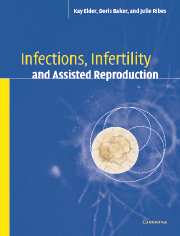4 - Virology
from Part I - Overview of microbiology
Published online by Cambridge University Press: 29 October 2009
Summary
Introduction
Viruses are obligate intracellular parasites, i.e. they require an animal, plant or bacterial cell for growth, survival and replication. The virus genome can consist of either DNA or RNA, and they use the host cell replication and protein synthesis machinery for their own growth and replication. Viruses do not have features that previously were thought to be necessary for any living organism: they do not respire, move or grow, produce waste products, utilize energy or display irritability; they do, however, have the ability to replicate inside eukaryotic or prokaryotic host cells. Viruses that infect bacteria are known as bacteriophages, and there are large numbers of viruses that infect plants, with significant impact on horticulture and crops.
Until the recent discovery of prions, viruses were described as the smallest known entities that can cause disease. Their size ranges from 20 nm (poliovirus) to around 400 nm (poxviruses). The smallest known bacterium is around 200 nm (mycoplasma), and the larger ones such as staphylococci are around 500 nm in size. Viruses therefore pass readily through bacterial filters (normally 220 nm) and they can only be visualized by electron microscopy, using negative staining (see Fig. 1.3).
Virus structure
The viral nuclei acid genome may consist of DNA or RNA (but never both), and this can be double-stranded, single-stranded, segmented or non-segmented, with positive or negative strand orientation.
- Type
- Chapter
- Information
- Infections, Infertility, and Assisted Reproduction , pp. 105 - 121Publisher: Cambridge University PressPrint publication year: 2004



